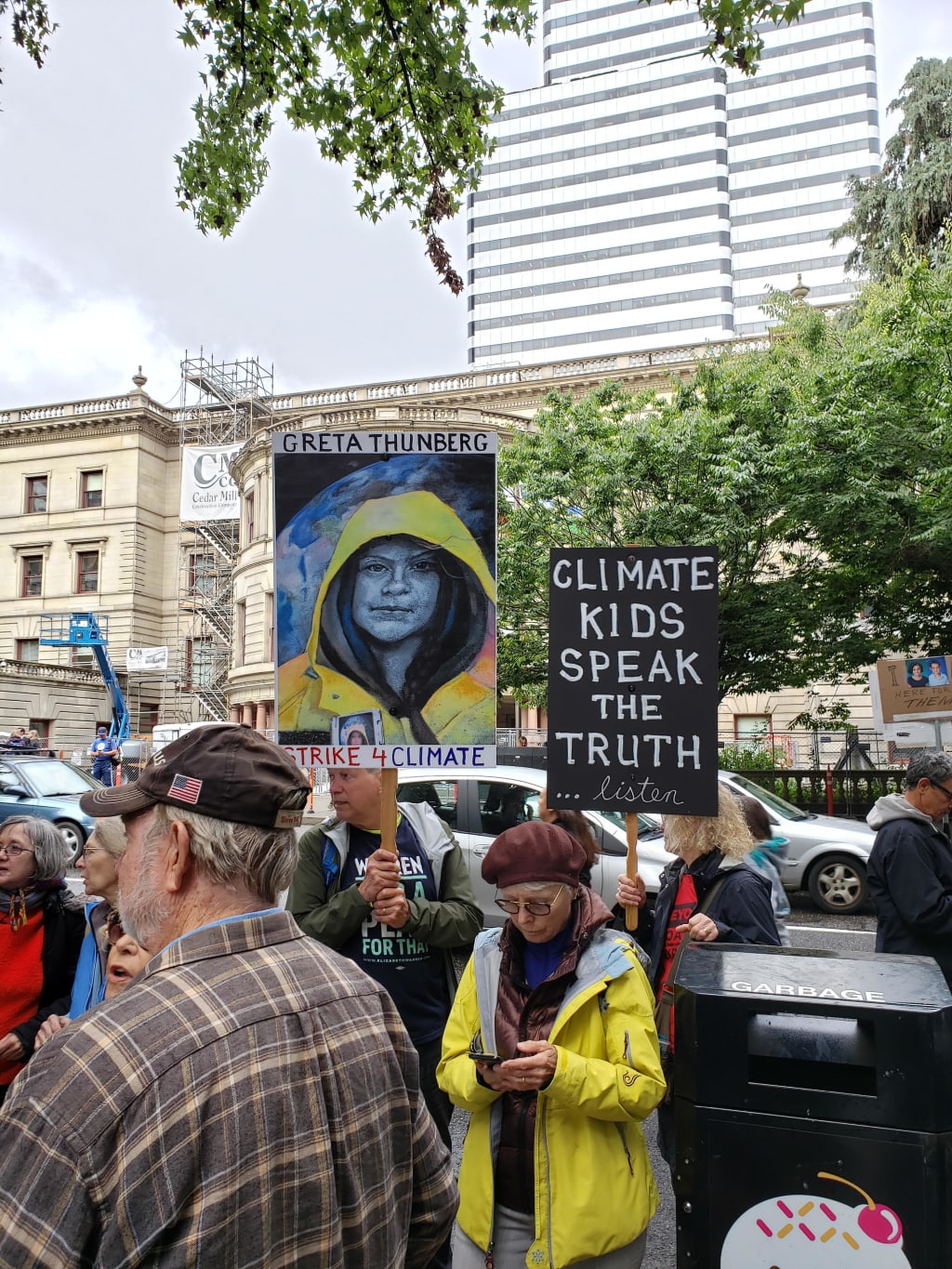
I don't remember when exactly I became a tree-hugger. The first memory I have of caring about the environment is when my parents had a National Geographic subscription. I was really quiet and introverted as a kid who spent a lot of time flipping through magazines filled with interesting maps and colorful photos of scenery and wildlife. It instilled in me an intense curiosity to learn more about the different places and peoples around the planet. And it opened my eyes to the moral conundrums and injustices of climate change and environmental degradation, even before I knew what any of those words meant. A 2004 issue framed CO2 emissions and climate change in terms of a mystery novel, as if fossil fuel companies were murdering the biosphere by mining oil and coal, and the Earth was unwittingly hiding the evidence by letting CO2 dissolve into the oceans. Nine year old me didn't know what some of the words meant, but they knew that this was a really big problem that would affect everyone they knew and everyone those people knew and all their descendants for hundreds and thousands of years.
At the same time, I also grew up in the Pacific Northwest region of the US, which is known for its natural beauty and strong environmental consciousness. Saving the planet and going green was much more mainstream in Portland, OR than say Austin, TX. Watching TV shows like The Simpsons, Mythbusters and NOVA Science Now with my dad served to reinforce my interest in science, nature, and environmental issues. The more I learned about climate change, the more I wondered what I could do to make a difference. I was never super pushy about it as a kid, and my fantasies of saving the planet with science and technology took a backseat to more mundane concerns like scootering around the neighborhood, chasing sunsets from my bedroom window, or snacking on almond bear claws and pickles from QFC.
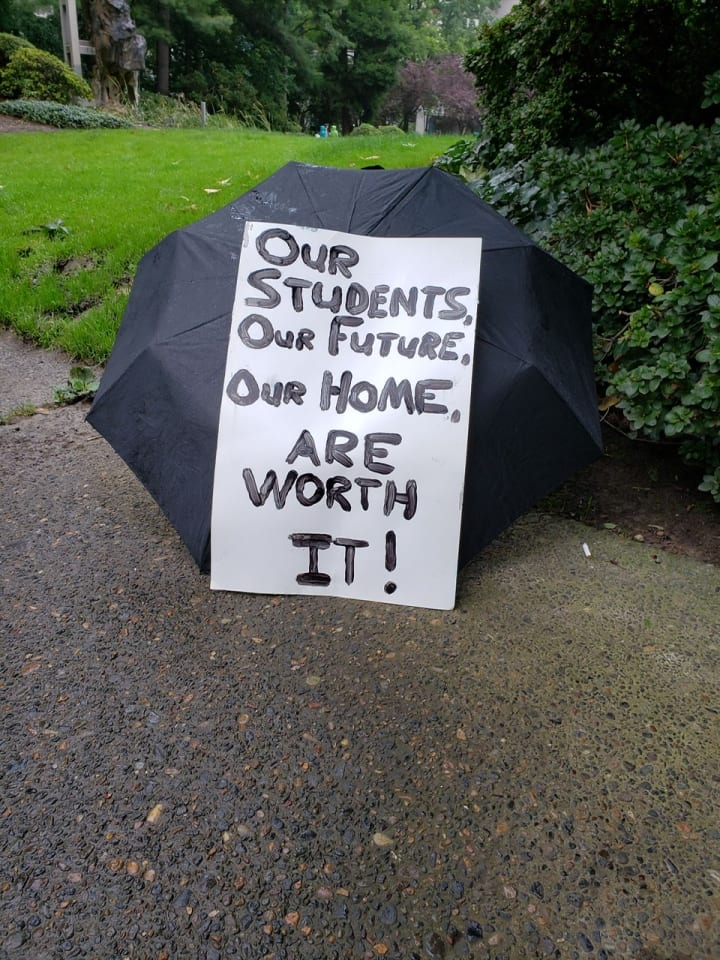
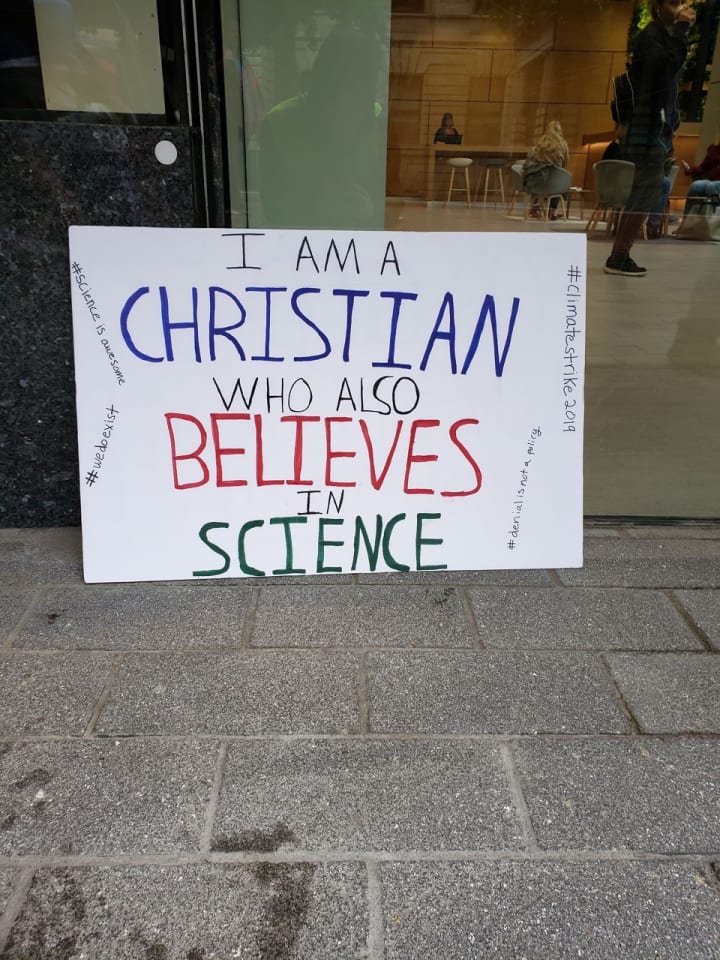
Eventually I grew up, did well enough in school to go to college out of state, and channeled my teenage rebelliousness into getting interested in political activism and wanting to be part of a bigger community making a difference in public affairs. Feeling liberated from parental supervision and immigrant culture expectations in my college campus environment, my first leap in the world of environmental activism was taking a selfie with a Gandalf cosplayer at a protest against coal exports by rail near the Olympic Sculptures on Elliot Bay in September 2014. That year, I also become involved with Earth Club leadership by being the club's liaison with the Earth Day planning committee.
Later on, while Donald Trump was elected president of the US in 2016, the carbon tax ballot initiative in Washington state failed, with almost all of the state outside of King County rejecting the measure. This, combined with the US pulled out of the Paris Climate agreement, galvanized many people (including myself) to take to the streets in the first annual March for Science on Earth Day 2017. While walking through the rain-soaked April streets of downtown Seattle, it was heartening to see how many retirees, older looking folks, and young children were joining me and the other twentysomething-looking folks I saw at the beginning of the march.
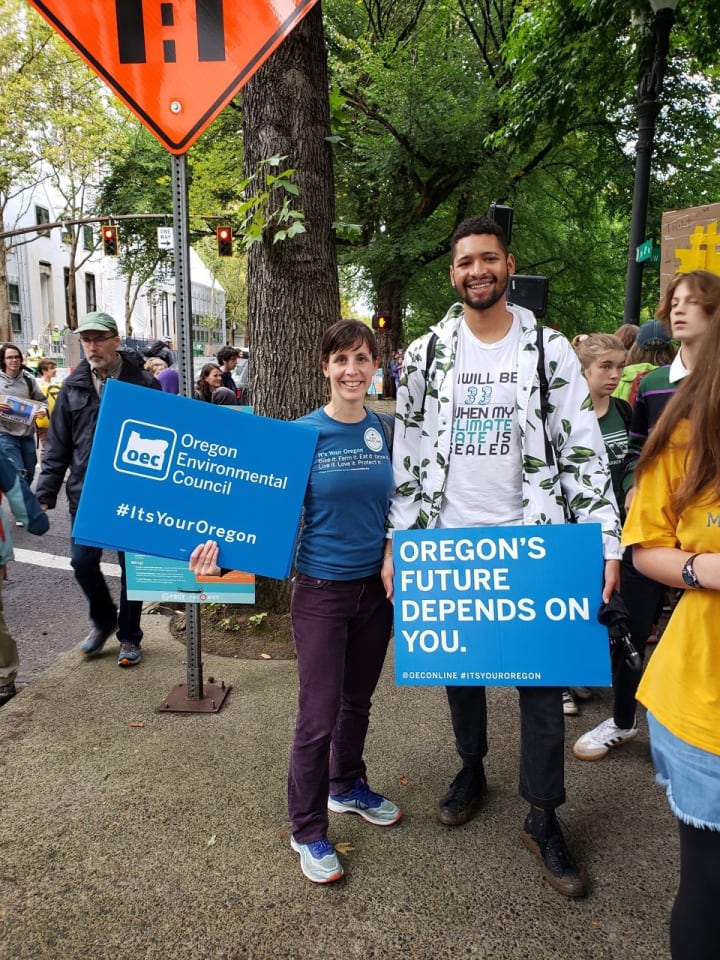
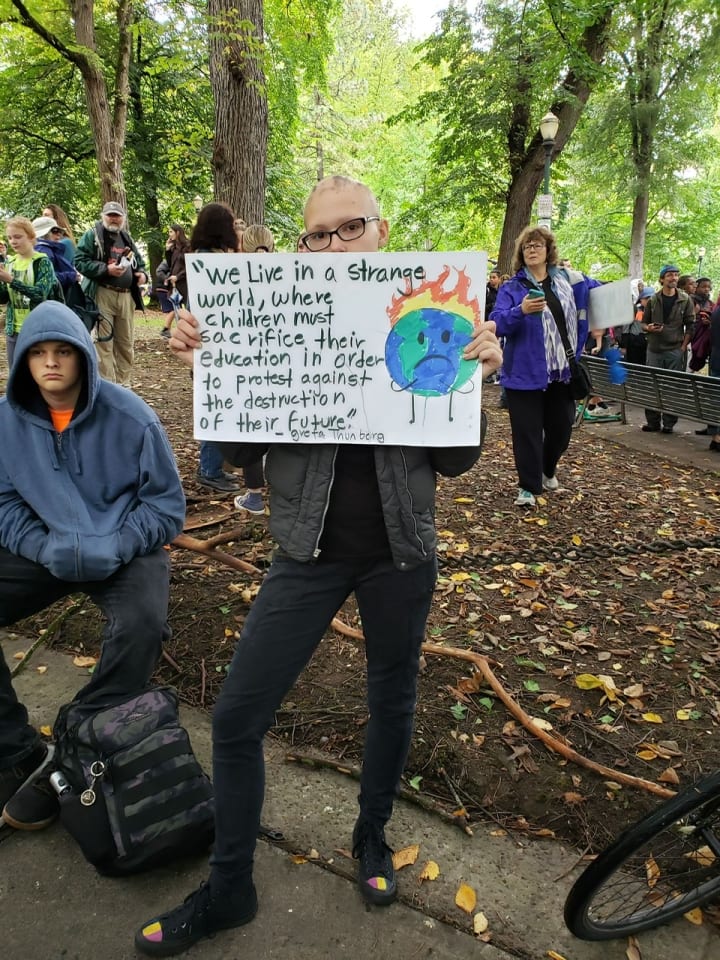
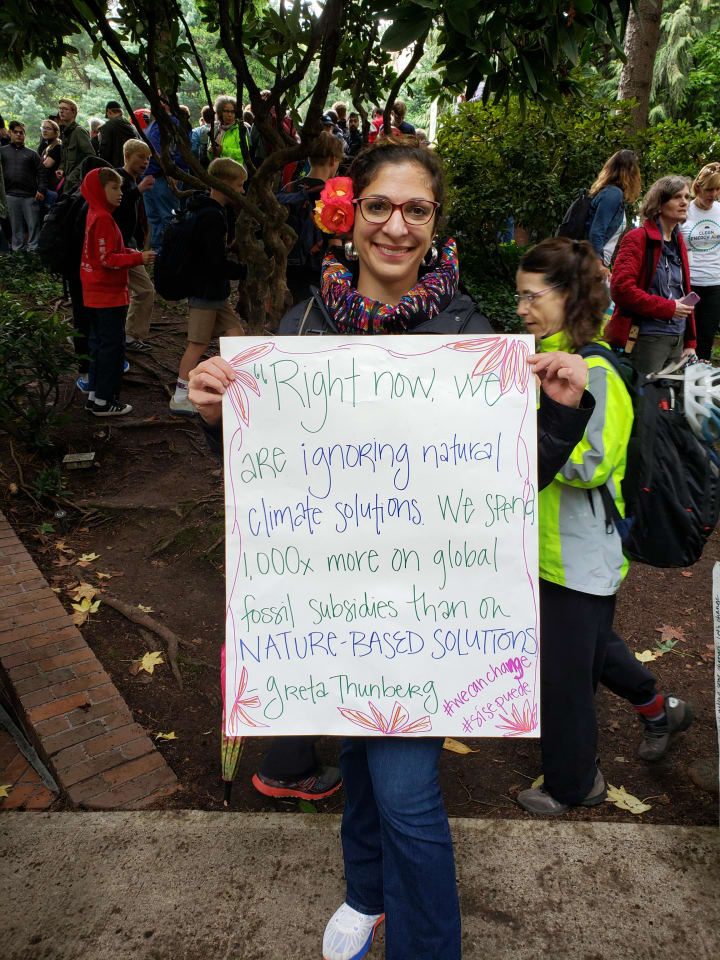
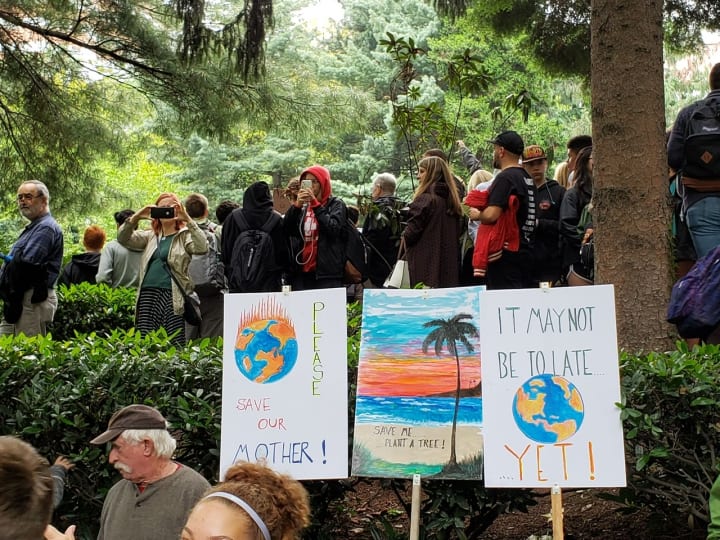
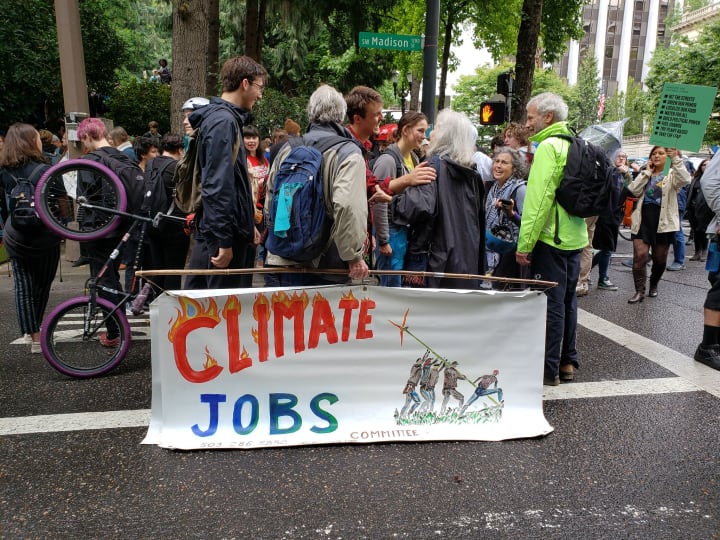
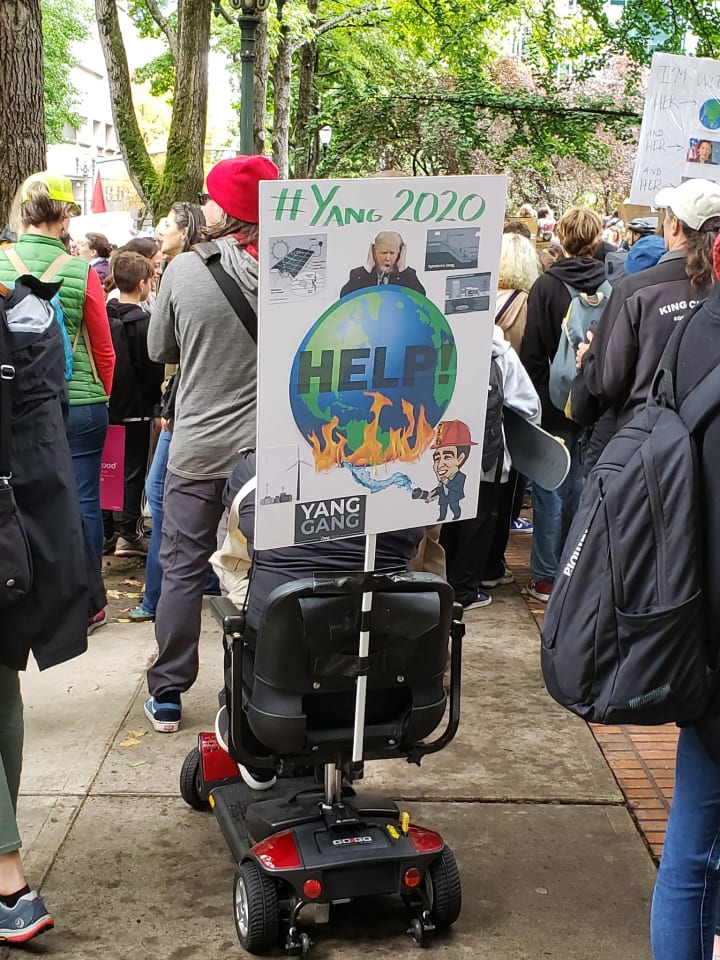
Initially, I thought I would relish being more politically engaged by emulating Greta Thunberg and Lisa Simpson and joining like minded people in the streets, and my inner INFJ “shy extrovert” did enjoy being able to take part in a big crowd of people marching in unison for a just cause. But as I grew more as a person during my college years and confronted some of my inner demons, I realized that some of my psychological motivation for participating in crowd events stemmed from a sense of loneliness and a lack of meaningful interpersonal interaction. Marching through the streets holding signs just didn't feel right if you were doing it by yourself. It was something you were supposed to do with at least one other person- and yet I had thought of my "activism" as a solitary engagement, to go against the grain of being a studious, obedient, conventional, driven child of upwardly mobile Chinese immigrants by doing something that none of my friends or family members would do.
I deeply cared about climate change and going green, and made a sustained effort to push myself out of my comfort zone to develop my environmental consciousness- so why did I feel so alone standing there among the fellow marchers in the rain, dressed in a lab coat and holding a homemade cardstock sign? Was it because I was at an emotional low point during my college career? Or did it have to do with something I realized about myself and my ulterior motivations for wanting to join Earth Club?
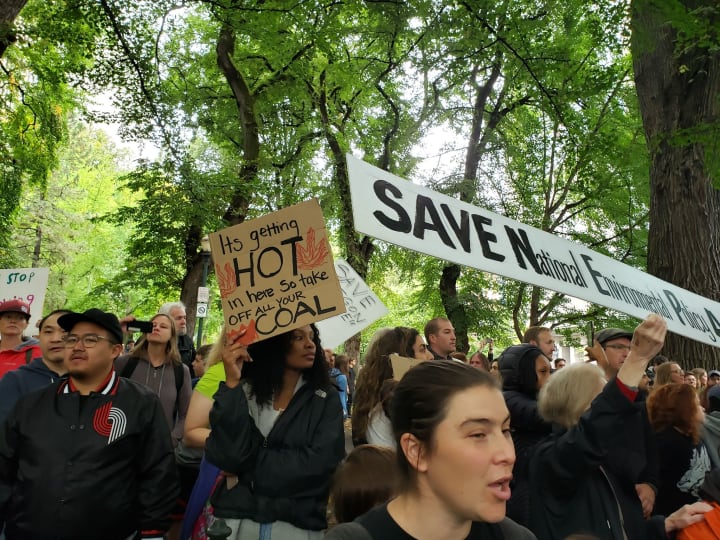
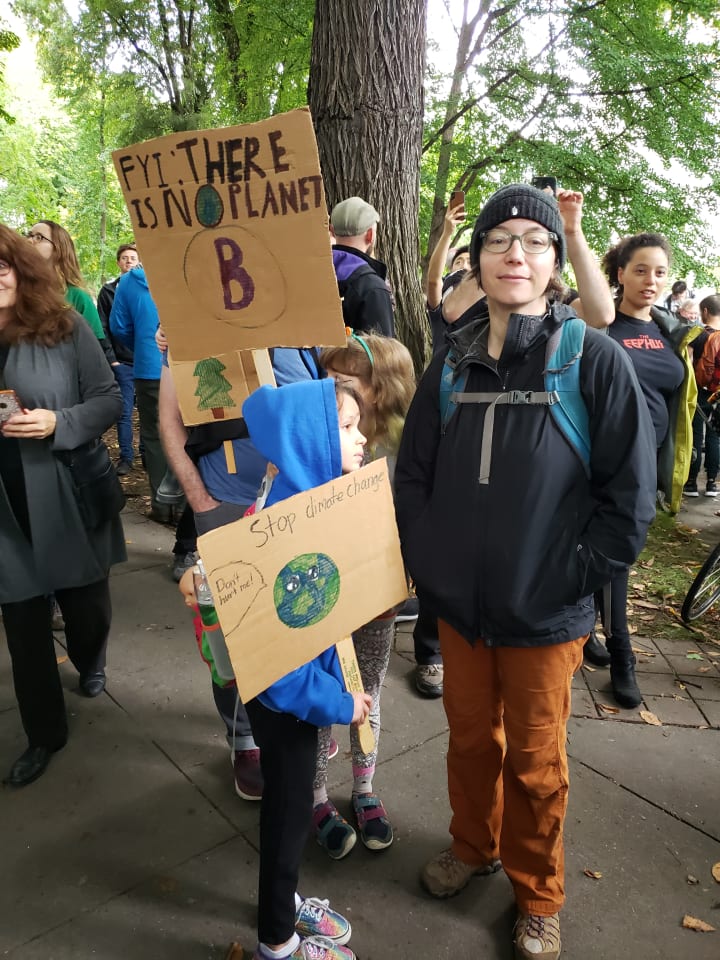
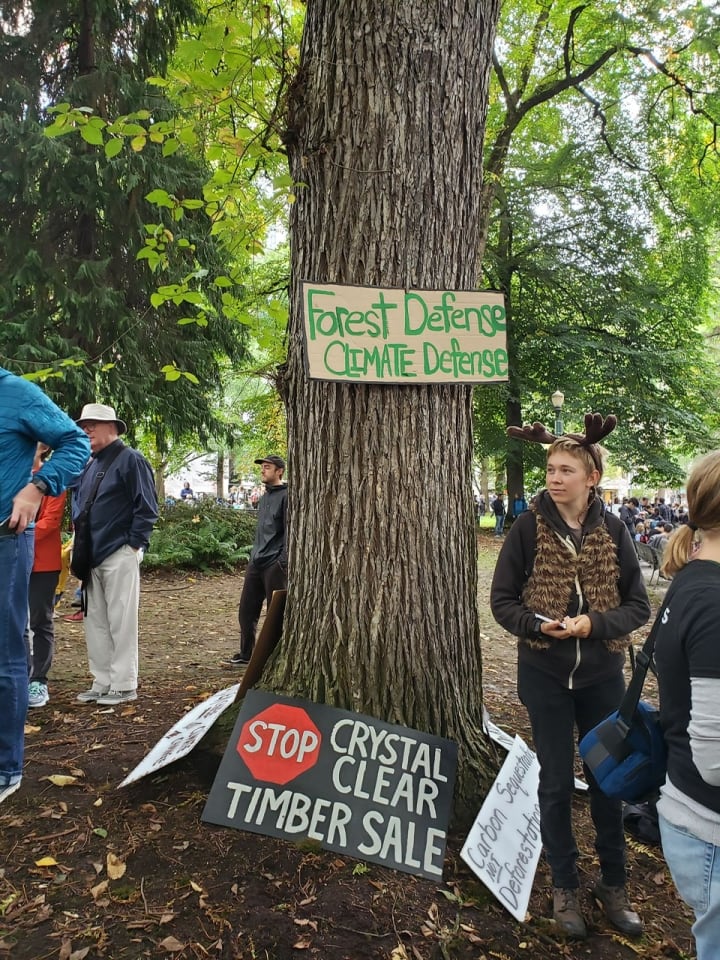
Realizing how isolated I felt during the march also got me thinking about how ephemeral some of my rationale was for participating in the march and getting involved in environmental activism and raising awareness during my time in college. Part of me wanted to use that period of my life as an opportunity to expand my comfort zone and try new, possibly unconventional things. For example, during my freshman year, I would half-jokingly confide in one of my close friends that I contemplated working for Greenpeace or the National Park Service if I didn't get into my highly competitive intended major. As I trekked through the drenched streets on that rainy Earth Day, I thought “oh, this is what it feels like”, it didn’t feel special to me, it just felt like another Saturday I was spending outside as if I was participating in a 5k speed walk. It was as if I had no more reason to pursue environmental activism or spreading awareness, and that this part of myself I had nurtured since my childhood was fading away as I “grew up” and had to confront my adult responsibilities of finding a stable, bachelors degree-worthy job and living up to the expectations I had been raised with.
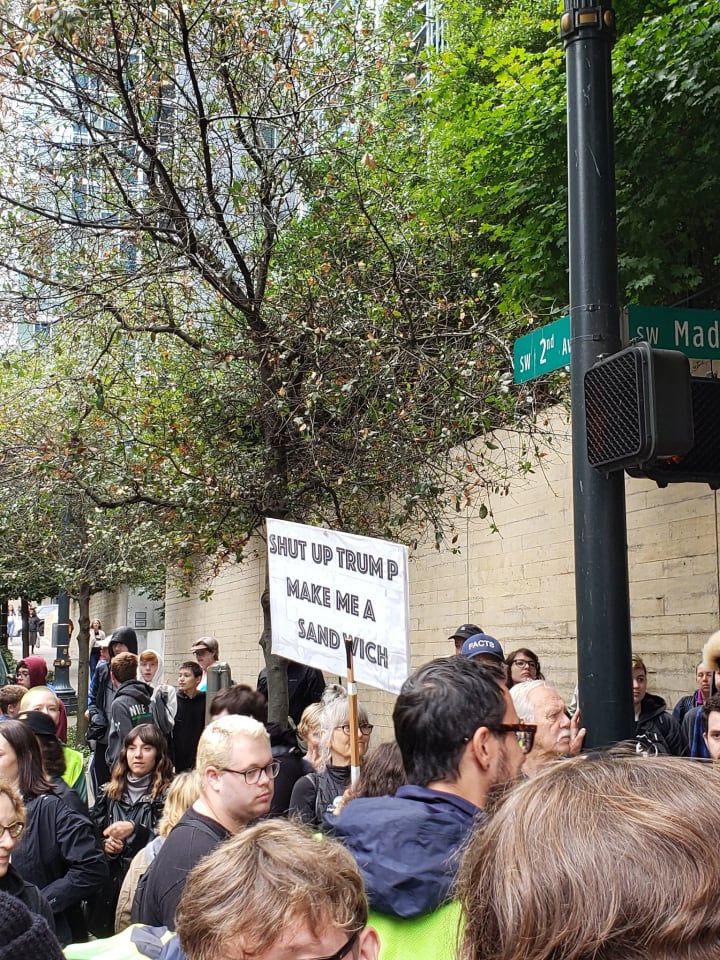
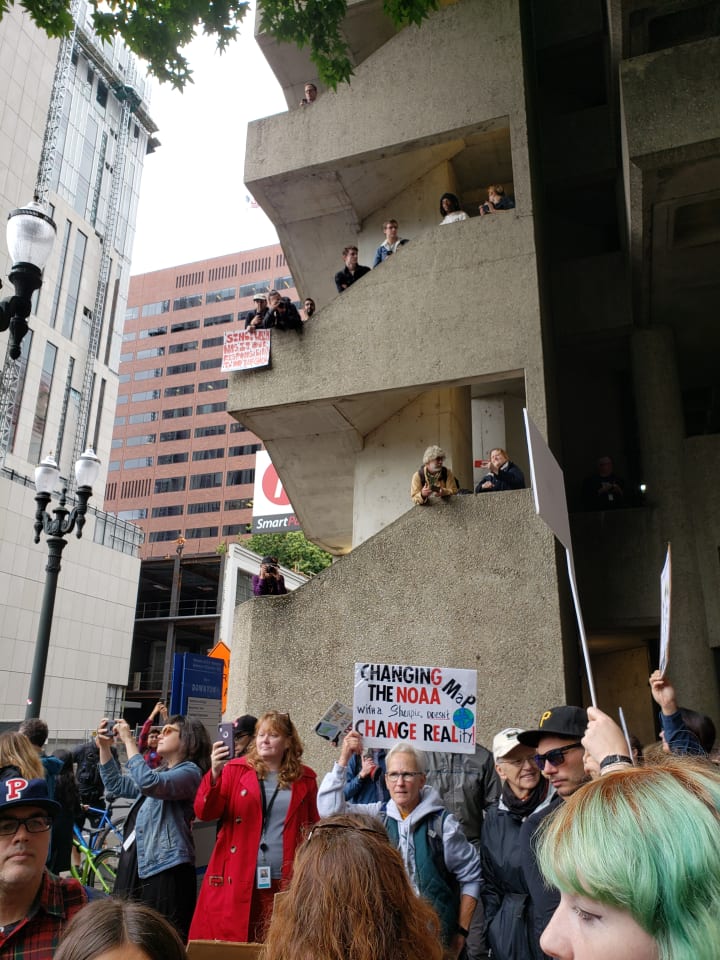
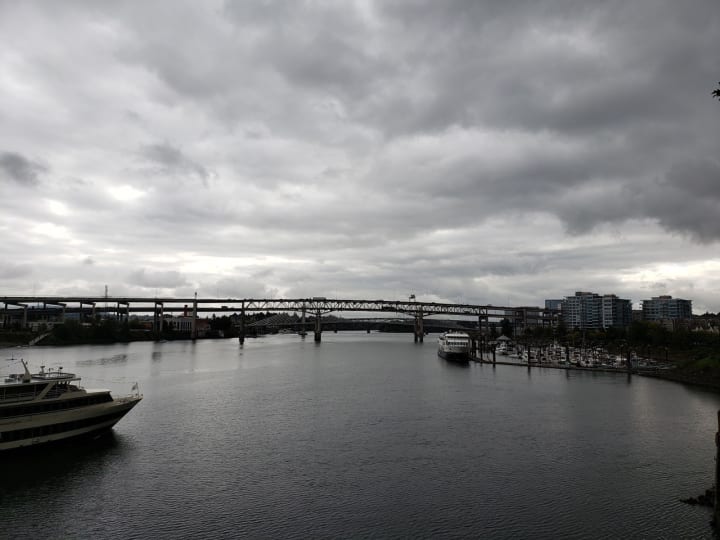
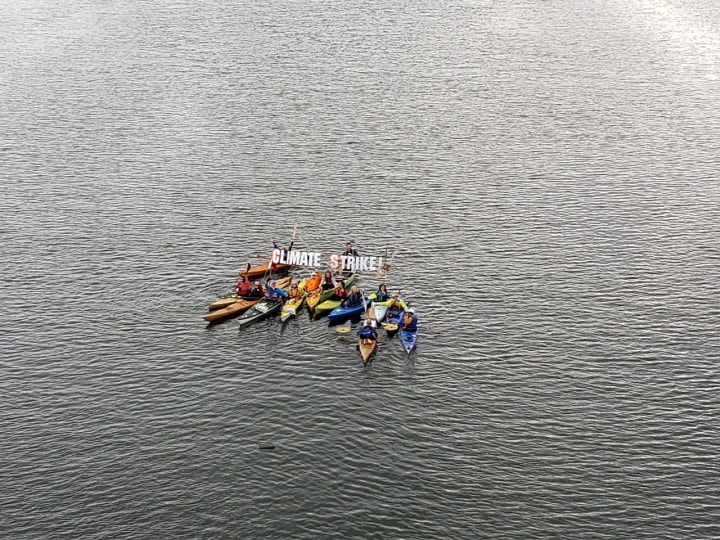
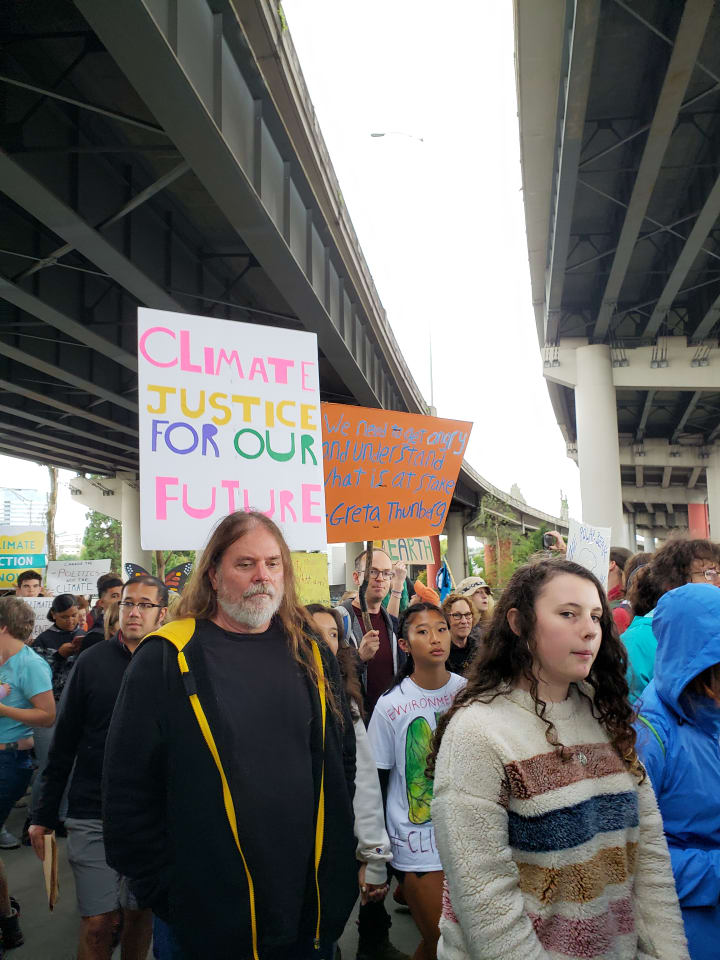
This isn’t to say that my enthusiasm for following climate change news or environmental issues went away after Earth Day 2017. But going through this experience helped me manage my expectations for what kinds of impact I could make as an individual. We don't need more "Greta Thunberg" activists to bring forth the changes we want to see in the world. In the age of widespread Internet and social media penetration, one voice can reach hundreds of millions of people. I figured the best way I could make a difference was to connect with other people who were equally enthusiastic about reduce our carbon footprints, and to lead by setting an example with individual behaviors (e.g. eating less meat, carpooling, reusing materials). This necessarily meant doing something else for a living, something that played to the strengths and skillsets I already had- and would force me to interact with different types of people who didn’t already hold the same opinions or behaviors as I did, so that I could learn new things from them and they could hopefully learn from me. It seemed like a more active and positive way to engage with the general public than shaming them for not already knowing certain facts and stats about climate change, or holding the same preconceived biases as I did.
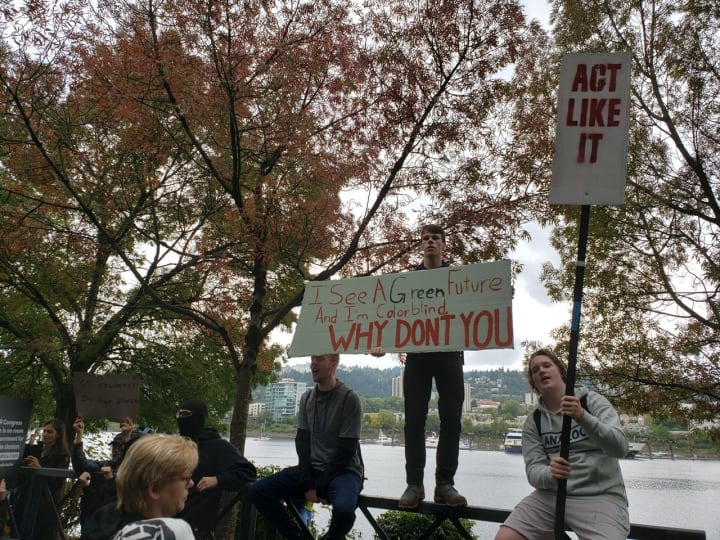
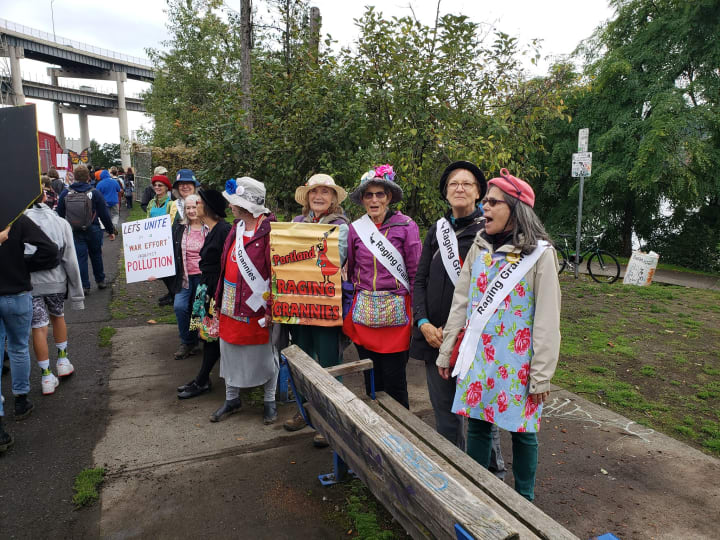
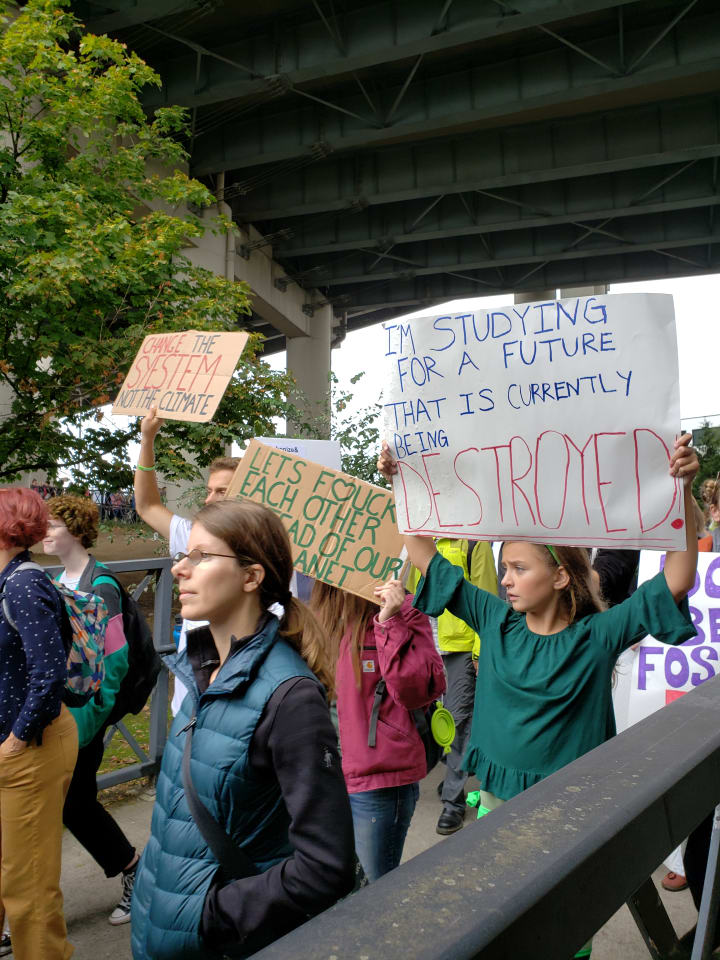
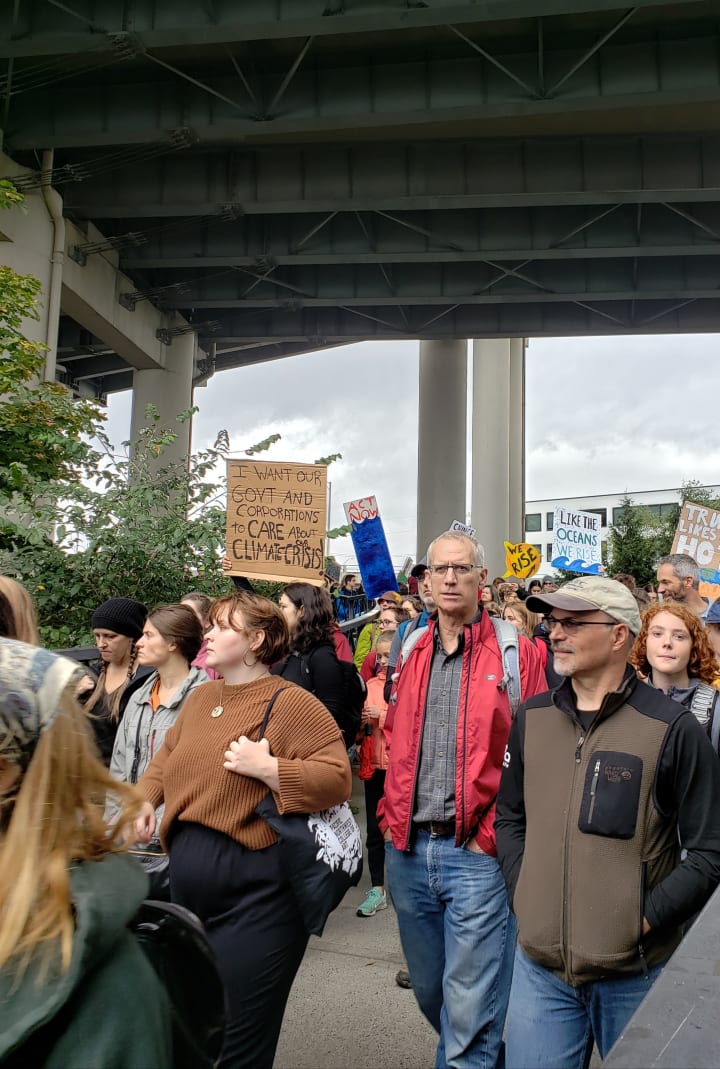
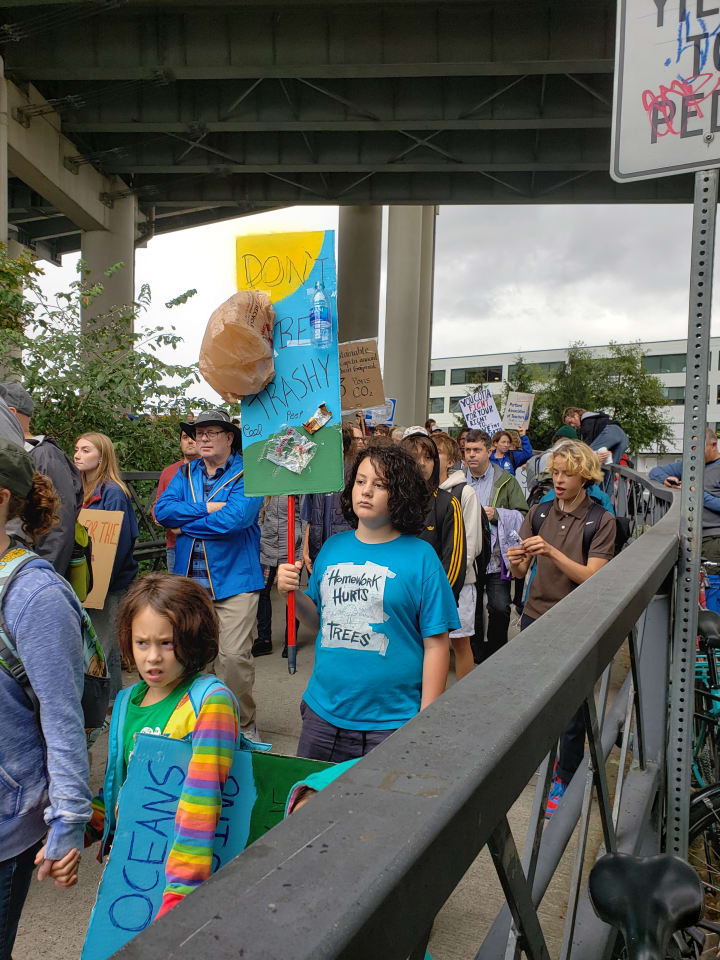
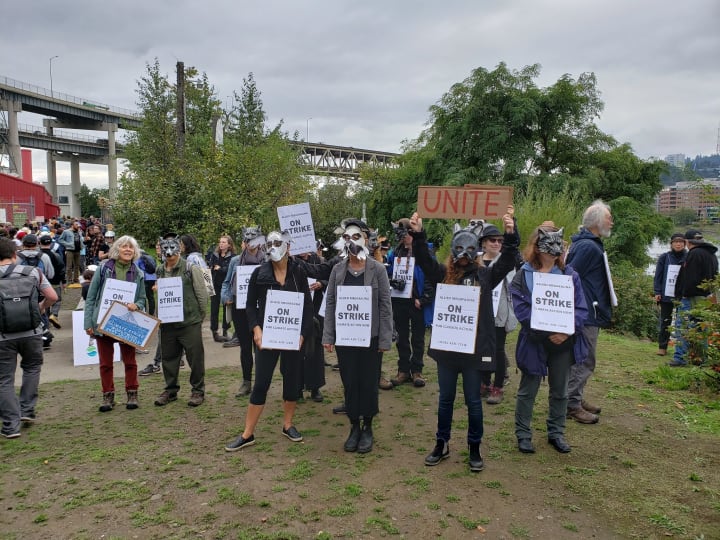
Fast forward to 2019, when I had started a new full-time job at a multinational corporation with long hours and a variable stress load at work. I was making more money than I had before, but felt stifled by the responsibilities of my new job and was nostalgic for being able to do things more freely during college. So when I heard there would be a Student Climate Strike in September 2019, on a day I didn’t have work, I decided to sign up as a volunteer peacekeeper to show my support for the cause and help make sure the participants stayed safe. I also used this opportunity to take photos of the signs some of the protestors made, in the hope of sharing their passion and hope for a more sustainable and liveable future.
Like the April 2017 March for Science in Seattle, it was overcast and raining that September 2019 day in Portland, although the rain was less intense and a bit more intermittent. I decided to use my work phone for its higher quality camera, partly because I was paranoid about having my personal phone tracked through any photos or video clips I took during the strike. (In hindsight, using my work phone may have been equally problematic from a privacy and security standpoint, even though I deleted the actual photos from my work phone's built-in photos storage immediately after they were all uploaded to Google Photos. But that's a story for another day.) At any rate, I'm glad I went out to volunteer with th event and vibe with the participants- who ranged from elementary school students to jovially raging grannies who seem to tag along at marches and protests in Portland. I even saw two people that I haven't seen since high school in the crowd, although I have no idea if they saw me in my hoodie and fluorescent yellow-green volunteer vest.
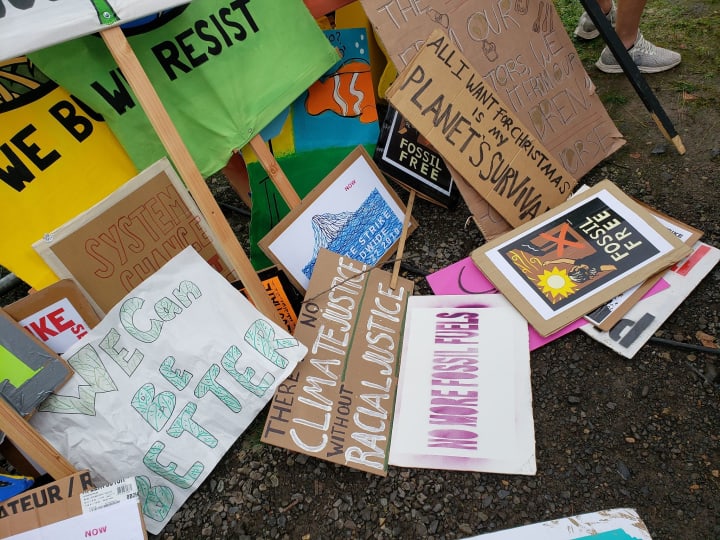
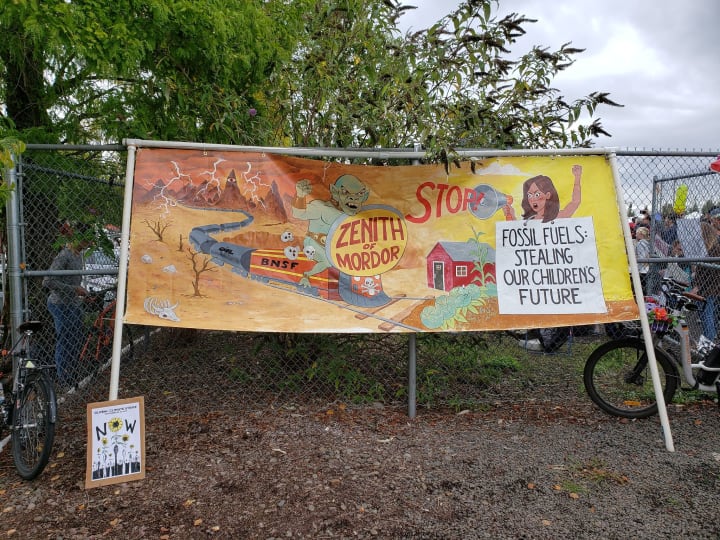
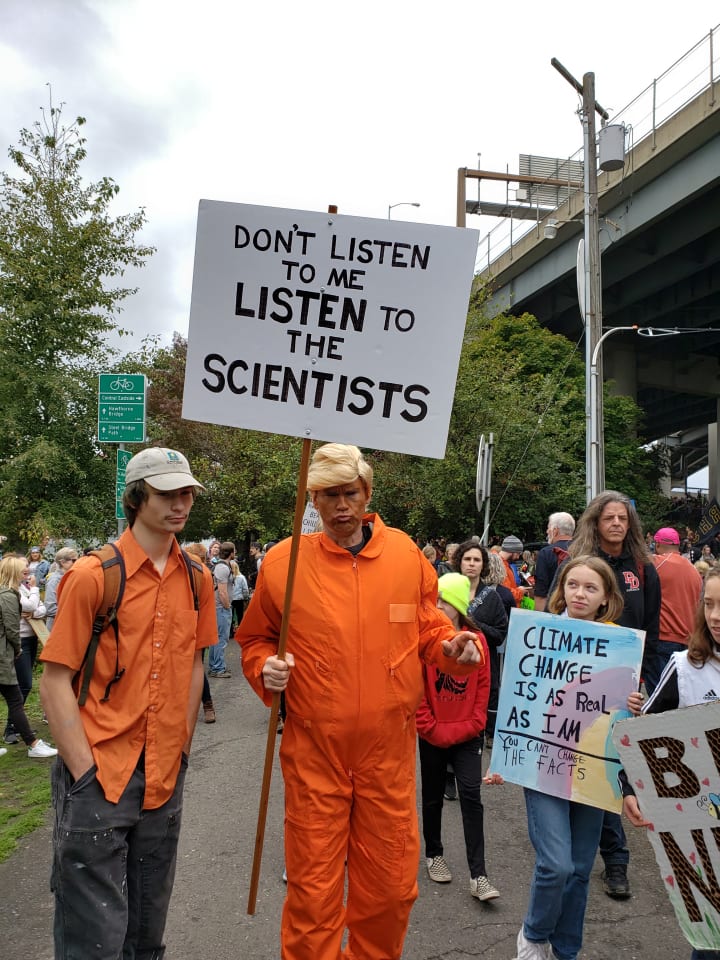
I originally intended to submit this photo album essay for the Beyond the Vote challenge, which took place during the 2020 US Elections. So the last part of this post will delve into the political implications of youth environmentalism and what we can do as individuals to help amidst the rising impacts of a changing climate.
Two years after the aforementioned challenge ended, it definitely seems that the energy and passion for constructive climate action among me and many of the young protestors I encountered as a volunteer was transfered to the ballot box in the 2020 and 2022 election cycles. Post-election analysis has showed that young voters turned out in favor of candidates who pledged to support concrete climate action, green energy investments and wildlife conservation, even as changes in voter turnout seemed to favor older, white, and ideologically right-of-center voters- groups that would be less primed to see climate change as an existential threat than the younger, nonwhite, and ideologically more left-leaning voters who in the US are more likely to express concern over environmental issues, even though it is often seen as something a certain type of upscale, granola-y white person cares about. Amidst an ongoing global pandemic, unusually high inflation, and ongoing political polarization, the Biden administration was still able to work with federal legislators in Congress and federal agencies to pass legislation for funding for investing in renewable energy, upgrading affordable housing, and expanding urban green spaces, all of which have a tangible impact on helping individuals and communities adapt to a changing climate.
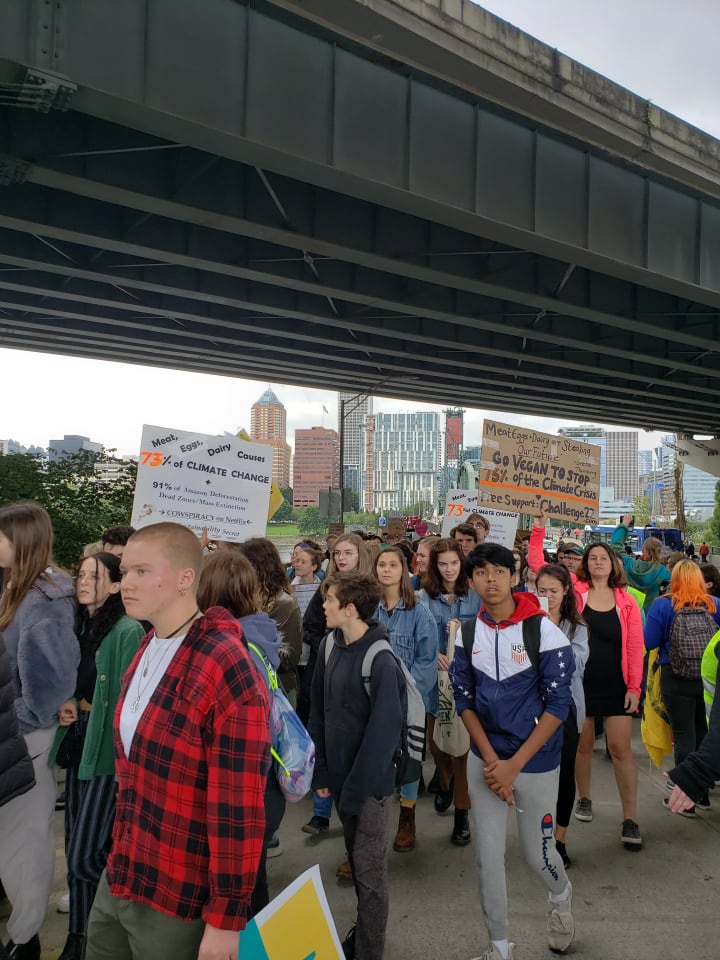
In some ways, taking part in the climate strike as a volunteer instead of an "active participant" was liberating, because I was a little more mature and went in with a different set of expectations. I still got to relive the spirit of being in college and feeling like I could change the world by being present in person with other people united in supposrt of a common cause. Some of this seems like a distant relic of the pre-COVID-19 world, given how much the pandemic has impacted social gatherings and normalized connecting virtually in various facets of daily life. But I also became aware of other ways I could indulge my urge to involve myself with climate change news and activism. The doomer in me always understood that no government could possibly "solve" climate change because of 1) we simply reach zero net carbon emissions with our existing technology and economy, and 2) reaching net zero (or even negative) carbon emissions won't reverse the rise in greenhouse gas levels that's caused existing change. To help bring about a more sustainable future, I figured it'd be more productive to make individual choices to hopefully set an example for others in my real-life network, on top of staying up-to-date with sustainability and environmental politics.
Midway through 2022, I replaced some of my monthly subscriptions with Wren, which is a website and platform for empowering individual consumers to offset their personal carbon emissions. When you sign up for an account, you can choose to donate money to the organization, kind of like a monthly subscription where your money goes towards investing in conservation and green technology R&D initiatives. It might seem cheesy, but it genuinely feels good knowing that the money that used to go towards Amazon Prime membership is now helping offset your personal carbon footprint based on your lifestyle choices. Another example of a pro-environment individual choice I made a few years ago was using the Ecosia search engine on my personal devices, which started in late 2019, after participating in the protest. The search engine plants one tree for every 50 or so searches- this ratio is based on the ad revenue generated from the searches. I've lost track of how many trees I've helped plant through searching for things, but I've been using it as my default search engine for three years and I spend a lot of time online so it must have added up.
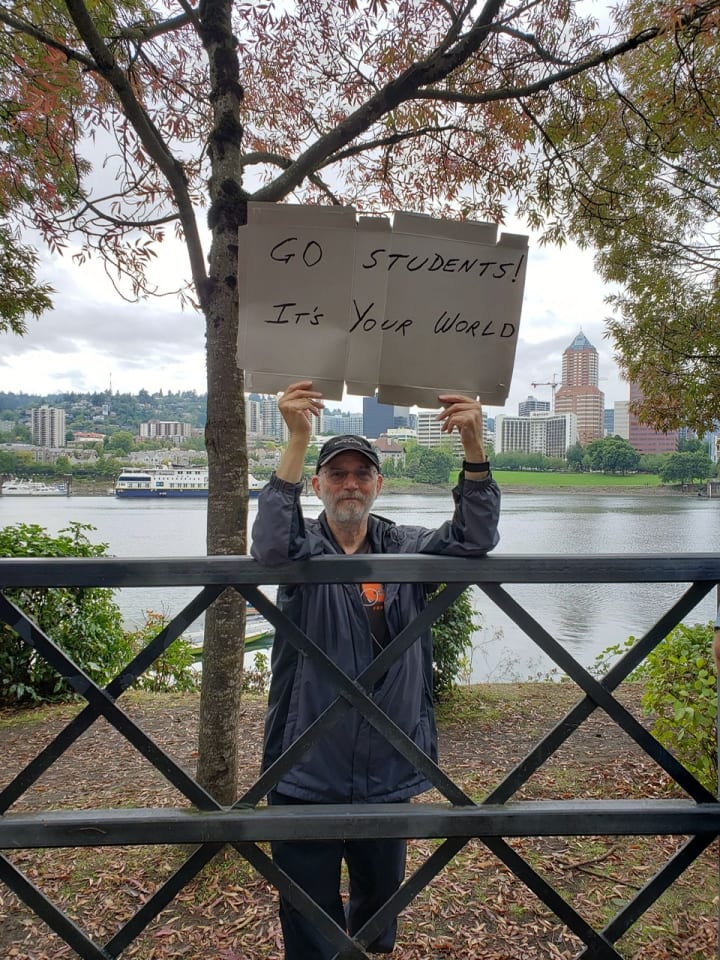
Not everyone is inclined to be an activist or would make a positive impact doing so, but you really don't need to march in a protest, donate to NGOs, or be a keyboard warrior to be a part of the solution. It can be as simple as making one small tangible change to your daily routine that compounds over time. I'd like to think that sharing the thoughts and feelings of the participants at this climate strike helps you, the reader, empathize with their hopes and dreams for a more sustainabile future and broadens your perspective a little bit.
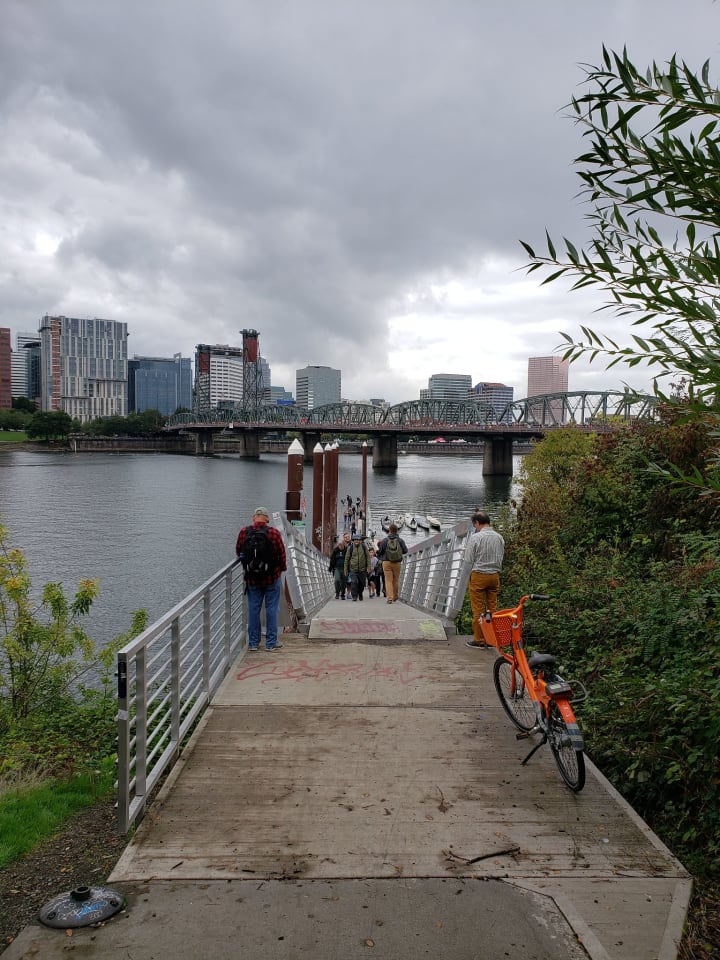
About the Creator
James Bao
Fulfilling my childhood dream of being a “published” author through Vocal Media Plus #gohuskies



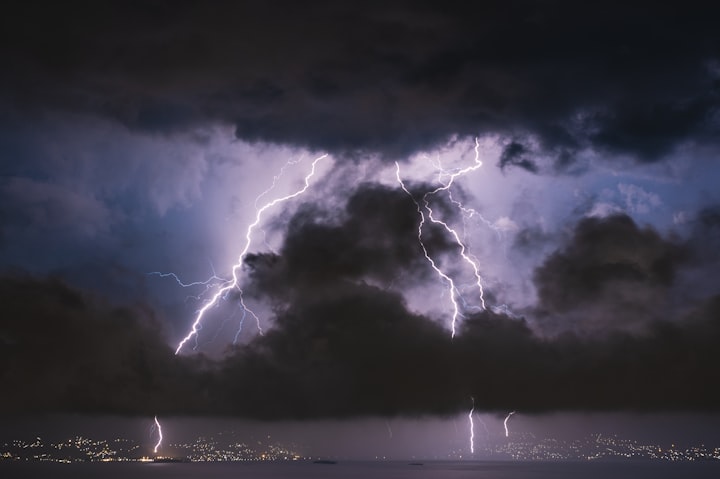


Comments
There are no comments for this story
Be the first to respond and start the conversation.